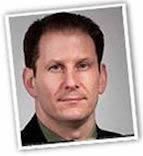The Depictive Nature of Visual Mental Imagery
Norman Yujen Teng
Page 1
Source: http://www.bu.edu/wcp/Papers/Mind/MindTeng.htm
ABSTRACT: Tye argues that visual mental images have their contents encoded in topographically organized regions of the visual cortex, which support depictive representations; therefore, visual mental images rely at least in part on depictive representations. This argument, I contend, does not support its conclusion. I propose that we divide the problem about the depictive nature of mental imagery into two parts: one concerns the format of image representation and the other the conditions by virtue of which a representation becomes a depictive representation. Regarding the first part of the question, I argue that there exists a topographic format in the brain but that does not imply that there exists a depictive format of image representation. My answer to the second part of the question is that one needs a content analysis of a certain sort of topographic representations in order to make sense of depictive mental representations, and a topographic representation becomes a depictive representation by virtue of its content rather than its form.
Problem Setting
Tye (1991) argues that visual mental images rely at least in part on depictive representations. His argument, in its barest and crudest form, goes like this. We know that visual experiences have their contents encoded in topographically organized regions of the visual cortex. We also know that visual mental images are constructed by activating previously stored visual information. These two empirical findings suggest that imagistic experiences also have their contents encoded in the topographically mapped areas. Now, it seems clear that the topographically organized regions of the visual cortex support depictive representations. Therefore, visual mental images rely at least in part on depictive representations (see also Kosslyn, 1994, pp. 12-21). Though the argument just described makes its point with cogency and force, I think that it is not sufficient to support the view that visual mental images rely on depictive representations. The problem, as I see it, is this. It is indeed interesting to note that in visual perception, the information coming in through our eyes goes through a series of stages of processing, with the retinal image being reconstructed in the visual cortex, so that in a quite literal sense adjacent parts of the visual cortex represent adjacent parts of the retinal image (see also Churchland & Sejnowski, 1992, pp. 31-34). In this topographically representational scheme, it is impossible to represent an object without also representing the spatial order of adjacent parts of the represented object. This result makes topographic representations very unlike propositional representations, where the information about the spatial order of adjacent parts of the represented object needs not be encoded. That topographic representations are not propositional does not imply that they are depictive representations, however. Notice that the topographic mapping preserves only order, but not size and not really shape. (Colors and other secondary qualities surely are never preserved.) Which makes a topographic representation a bit unlike a depictive representation (Guzeldere, 1995,p. 353, footnote 19). For depictive representations seem to require something more than just order-preserving. Moreover, topographic maps are found not only in the visual cortex. A similar topographic relation exists in other sensory modalities. For example, in auditory perception the anterior portion of the auditory cortex responds to high-frequency tones and posterior regions respond to progressively lower frequencies. (Stilling et al., 1995, p. 298) The map is for frequency, not spatial order of adjacent parts of a depicted scene, and is thus at a considerably further remove from what we might take to be a depictive representation. So, if topographic mapping in auditory perception does not support depictive representation, than topographic mapping in visual perception by itself does not support depictive representation, either. Thus, one might conclude, visual mental images does not depend on depictive representations. The problem just described hinges on two assumptions: (A1) Depictive representations require something more than just order-preserving, and (A2) topographic representations in the auditory cortex are not depictive representations. In what follows I first elaborate these two assumptions, arguing that one should accept them and take the above problem seriously.
Next, I examine Tye's theory, arguing that his theory only partly explains the depictive nature of visual mental images. This paper concludes with my proposal that we need to divide the problem about the depictive nature of mental imagery into two parts: (Q1) The format problem: What is the format of mental imagery? (Q2) The representation problem: What are the conditions by virtue of which a representation become a depictive representation? Regarding the first question, I argue that there exists a topographic format in the brain, and one should abandon the talk about depictive format of image representation. My answer to the second question is that one needs a content analysis of a certain sort of topographic representations to make sense of depictive mental representations, and a topographic representation becomes a depictive representation by virtue of its content rather than its form.
.
We Make it Easy to Succeed
Successwaves, Intl.
Brain Based Accelerated Success Audios
 |






